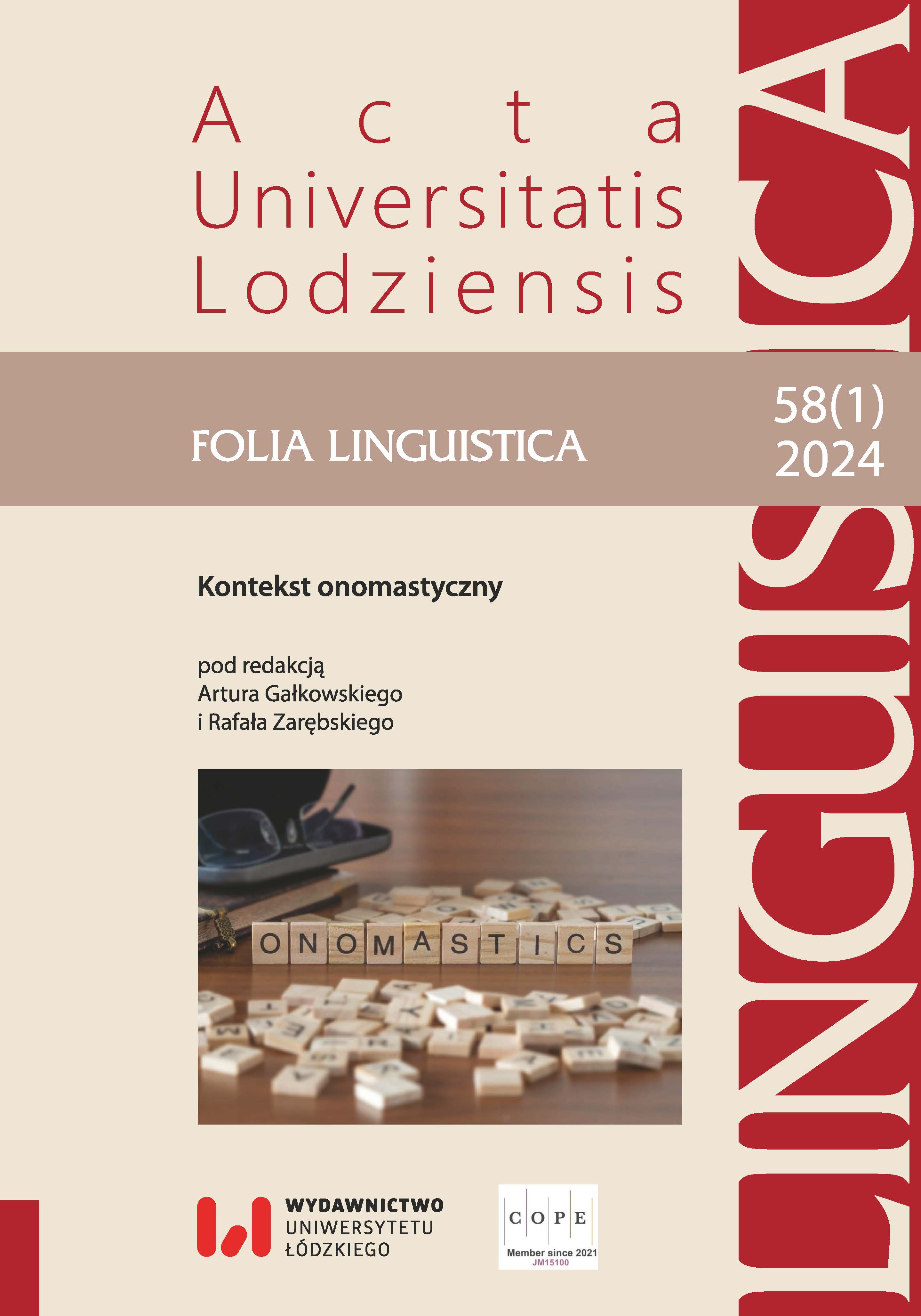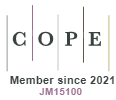Sociological, cultural and psychological aspects of the names given to children by Polish Americans
DOI:
https://doi.org/10.18778/0208-6077.58.1.06Keywords:
anthroponymy, onomastics, names, sociolinguistic analysis, Polish AmericansAbstract
The article attempts to present the sociological, cultural and psychological aspects of the names currently given to children by the American-Polish community. For this purpose, a survey was conducted with 285 participants. The research material includes 923 uses of names, which were divided in terms of the country of origin of the parents on the one hand, and classified into the group of Polish, international or foreign names on the other. Modern Polish Americans primarily choose native names or those associated with the Polish naming system. The most popular proper names in the study group were Adam and Julia. Names emphasizing a family’s ethnic, cultural or religious background were more likely to be given as second names. This is due to fears of displeasing the child with a name that is atypical for Americans and difficult to pronounce, the desire for assimilation and the parents’ personal experiences. Most children expressed satisfaction with having a Polish name, while negative feelings were caused by the American pronunciation distorting the original sound and form, and the translation of names into English. A sort of compromise to facilitate communication with peers is the use of a shortened form of the name or a nickname.
Downloads
References
Adamczyk K., 2013, Koniec mitu. Ameryka emigrantów lat osiemdziesiątych, ,,Konteksty Kultury” 3, s. 370–381.
Google Scholar
Doroszewicz K., 2003, Psychologiczne aspekty imion ludzkich, ,,Psychologia Jakości Życia” 2(1), s. 89–110.
Google Scholar
Doroszewicz K., Krzemińska M., 2007, Forma imienia jako przesłanka wnioskowania o osobowości, ,,Przegląd Psychologiczny” 3, s. 259–271.
Google Scholar
Edwards R., Caballero C., 2008, What’s in a Name? An Exploration of the Significance of Personal Naming of ‘Mixed’ Children for Parents from Different Racial, Ethnic and Faith Backgrounds, ,,Sociological Review” 56(1), s. 39–60. https://doi.org/10.1111/j.1467-954X.2008.00776.x
Google Scholar
Gerhards J., Hans S., 2009, From Hasan to Herbert: Name-giving Patterns of Immigrant Parents between Acculturation and Ethnic Maintenance, ,,American Journal of Sociology” 114(4), s. 1102–1128. https://doi.org/10.1086/595944
Google Scholar
Girma H., 2019, Black Names, Immigrant Names: Navigating Race and Ethnicity through Personal Names, ,,Journal of Black Studies” 51(1), s. 16–36. https://doi.org/10.1177/0021934719888806
Google Scholar
Graf M., 2021, Imiona słowiańskie we współczesnym polskim antroponomastykonie (w kontekście fenomenologicznej koncepcji Bernharda Waldenfelsa), ,,Prace Językoznawcze” 2, s. 137–154. https://doi.org/10.31648/pj.6582
Google Scholar
Keller T., Franzak J.K., 2016, When Names and Schools Collide: Critically Analyzing Depictions of Culturally and Linguistically Diverse Children Negotiating Their Names in Picture Books, ,,Children’s Literature in Education” 47(2), s. 177–190. https://doi.org/10.1007/s10583-015-9260-4
Google Scholar
Kohli R., Solórzano D.G., 2012, Teachers, Please Learn Our Names!: Racial Microagressions and the K-12 Classroom, ,,Race Ethnicity and Education” 15(4), s. 441–462. https://doi.org/10.1080/13613324.2012.674026
Google Scholar
Krawczyk A., Lorenc A., 2019, Diagnoza artykulacji u dzieci dwujęzycznych wychowujących się w środowisku polsko-amerykańskim, ,,Logopedia” 48(2), s. 307–334.
Google Scholar
Malec M., 2001, Imię w polskiej antroponimii i kulturze, Kraków: Wydawnictwo Naukowe DWN.
Google Scholar
Malec M., 2008, Formy skrócone staropolskich imion dwuczłonowych oraz rodzime imiona odapelatywne nadawane jako imiona samodzielne w XX wieku, ,,Annales Academiae Paedagogicae Cracoviensis. Studia Linguistica” 51(3), s. 209–218.
Google Scholar
Małus A., 2016, Znaczenie osobiste przypisywane imieniu, ,,Psychiatria i Psychoterapia” 12(1), s. 25-42.
Google Scholar
Palinciuc-Dudek E., Dudek P., 2017, W stronę asymilacji, integracji czy separacji? O imionach w aspekcie dwukulturowości i emigracji, ,,Onomastica” 61(2), s. 253–263. https://doi.org/10.17651/ONOMAST.61.2.19
Google Scholar
Pikuła A., 2016, Kulturowo-socjologiczne aspekty nadawania imion (na przykładzie imion mieszkańców gminy Niegowa w województwie śląskim), „Prace Naukowe Akademii im. Jana Długosza w Częstochowie. Językoznawstwo” 12, s. 183–195.
Google Scholar
Sikora K., 2000, Dźwięk, który nie jest nawet cząstką ciebie: imię a tożsamość, Kraków: Wydawnictwo Uniwersytetu Jagiellońskiego.
Google Scholar
Downloads
Published
Versions
- 10-07-2024 (2)
- 29-05-2024 (1)
How to Cite
Issue
Section
License

This work is licensed under a Creative Commons Attribution-NonCommercial-NoDerivatives 4.0 International License.










